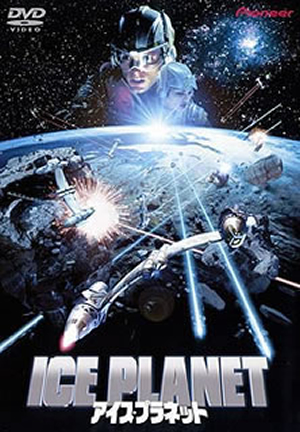
植民地英語みたいな英語だと思ったら、ドイツ映画でした。
ちゃんと観ていないけど(流していただけ)、「2001年宇宙の旅」と「エイリアン」と「プレデター」と「スター・トレック」と「スターウォーズ」が合わさったような作品です。「いいとこ取り」を狙ったけど、相手が大きすぎた、という感じでしょうか。まあ、SFで新しいジャンルを見つけるのは難しいから、それ以外の要素はないと言ってもいいけど。
老学者が「私の研究が大量殺戮兵器を生んでしまった。人々に顔向けできない」と語ります。ノーベルと同じですね。司令官は「博士の発明がなかったら、あの戦争に勝てなかった」と学者をかばいます。この戦争とは「連邦政府と、企業連合との戦争」です。どちらが勝ったのかはわかりません。いずれにしても人間同士の戦争です。
ノーベルが考えていた戦争も多分「人間と人間」の戦争でしょう。Wikipediaによれば、「ノーベルにとってダイナマイトが戦争で使われることは想定内であり、むしろ破壊力の大きな兵器は戦争抑止力として働くと予想していたが、実際には高性能爆薬の普及により戦争の激化を招いたことで世間的には「死の商人」というイメージが広まっていた」とあります(Wikipedia「アルフレッド・ノーベル(1833/10/21-1896/12/10)」)。なんか「核抑止力」と共通する話ですよね。
それで、「ノーベルは死後の評価を気にするようにな」り、ノーベル賞の創設を遺言状に書いたそうです。きっと、ノーベルはダイナマイトの「平和利用」を考えていたのでしょう。今でも「核の平和利用」を唱える人が多くいます。「原爆はだめだけど、原発はOK」などという人たちです。ノーベルも「人殺しはだめだけど、山を崩したりトンネルを掘ったりするのはOK」だと思っていたのではないでしょうか。
きっと、山にいる動物や、地中の生物のことは考えなかったでしょうね。「同じ生き物」という発想は西欧(欧米)には薄いと思います。最近、「環境保護」の観点から、「動物愛護」などの運動が日本で報道されていますが、それは日本人に受け入れられやすいニュースだからです。「一寸の虫にも五分の魂」的発想は、仏教の発祥の地、インドにもあります(ジャイナ教など)。でも、仏教とは別に日本古来からそういう伝統があったような気がします(そう思うだけです。根拠はありません)。
日本人がノーベル賞を受賞するかどうか、毎年話題になります。去年はカズオ・イシグロが受賞したことで盛り上がっていましたが、彼は日本人ではありません。
アカデミー賞も毎年騒がれますが、あれは「ハリウッド」の賞です。「日本アカデミー賞」などという恥ずかしい名前の賞もありますが、チャールズ・チャップリンがアカデミー賞を受賞したのは1973年です。理由は調べてください。
西欧にも汎神論的な土着の宗教があったと思いますが、ローマ帝国によってキリスト教が広められてからは、「理性」を持つ人間と、理性を超えた神、理性のないその他(の生き物)という区分しかなくなりました。そして、黒人や黄色人種は理性のない「野蛮人」「未開人(まだ啓蒙されておらず、理性を持てない人)」とされて、「人間」の中には含まれませんでした。原爆が日本に落とされた理由の一つに、それがあるような気がしてなりません。
私は村上春樹が大好きです。でも、村上春樹にノーベル賞は受賞してほしくありません。欧米人に、「村上春樹の繊細な感覚がわかってたまるか」と思っています。(笑)
If I thought it was English like colonial English, it was a German movie.
I haven't watched it properly (just let it flow), but it's a work that combines "2001: A Space Odyssey", "Aliens", "Predator", "Star Trek", and "Star Wars". I aimed for "good points", but I think the other party was too big. Well, it's hard to find a new genre in science fiction, so it's safe to say that there are no other factors.
An old scholar says, "My research has created a mass murder weapon. I can't face people." It's the same as Nobel. The commander protects the scholar, "Without the invention of the doctor, I would not have won that war." This war is a "war between the federal government and the business alliance." I don't know which one won. In any case, it is a war between humans.
The war that Nobel was thinking of was probably a "human-to-human" war. According to Wikipedia, "For Nobel, it was expected that dynamite would be used in war, and rather destructive weapons would act as a deterrent to war, but in reality, the spread of high-performance explosives led to war. The image of "merchant of death" was widespread in the world because of the intensification of the war "(Wikipedia" Alfred Nobel (1833/10 / 21-1896 / 12/10) "). It's a story in common with "nuclear deterrence."
So, "Nobel became concerned about the evaluation after death," he wrote in his will about the establishment of the Nobel Prize. I'm sure Nobel was thinking about "peaceful use" of dynamite. Many people still advocate "peaceful use of nuclear weapons." People say, "The atomic bomb is useless, but the nuclear power plant is OK." Nobel might have thought, "You can't kill people, but it's okay to break mountains or dig tunnels."
I'm sure you didn't think about the animals in the mountains or the creatures in the ground. I think the idea of "the same creature" is thin in Western Europe (Western Europe). Recently, from the viewpoint of "environmental protection", movements such as "animal welfare" have been reported in Japan, because it is news that is easily accepted by Japanese people. The idea of "a tiny insect and a five-minute soul" is also found in India, the birthplace of Buddhism (Jainism, etc.). However, apart from Buddhism, I feel that there has been such a tradition since ancient times in Japan (I just think so, there is no basis).
Whether or not the Japanese will win the Nobel Prize is a topic every year. Last year, Kazuo Ishiguro was excited about the award, but he is not Japanese.
The Academy Awards are also a hot topic every year, but they are "Hollywood" awards. There are some embarrassing awards such as the "Japan Academy Prize", but Charles Chaplin won the Academy Prize in 1973. Find out why.
I think there was a pantheistic indigenous religion in Western Europe, but after Christianity was spread by the Roman Empire, it was called a human being with "reason", a god beyond reason, and other (creatures) without reason. There are only divisions. Blacks and yellows were not included in "humans" because they were considered irrational "barbarians" and "savages (those who have not yet been enlightened and have no reason)". I don't think that is one of the reasons why the atomic bomb was dropped on Japan.
I love Haruki Murakami. But I don't want Haruki Murakami to win the Nobel Prize. I'm wondering if Westerners can understand the delicate feeling of Haruki Murakami. (Lol)
[スタッフ・キャスト等]
監督:ウィンリック・コルベ[wiki(JP)]
製作:M・G・コンフォード[wiki(JP)] ヘンドリック・ヘイ[wiki(JP)]
脚本:M・G・コンフォード
撮影:マイケル・ホフスタイン[wiki(JP)]
SFX: ジョン・シュラッグ[wiki(JP)]
<出演>
アンナ・ブリュゲマン
ウェス・ステューディ[wiki(JP)]:トレガー艦長
ジェームズ・オシェア[wiki(JP)]:ジャック・カノー
サブ・シモノー[wiki(JP)]:ルムラ博士
ヴァレラ・ニコラエフ[wiki(JP)]:ブレード大尉
ラエ・ベイカー[wiki(JP)]:シネイダ
アンバー・ウィレンボーグ
ジェームズ・バトラー


